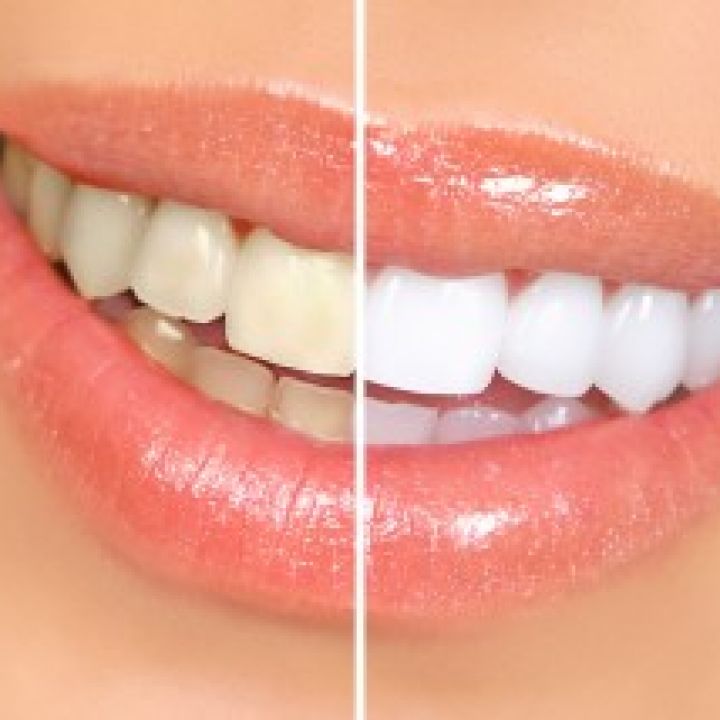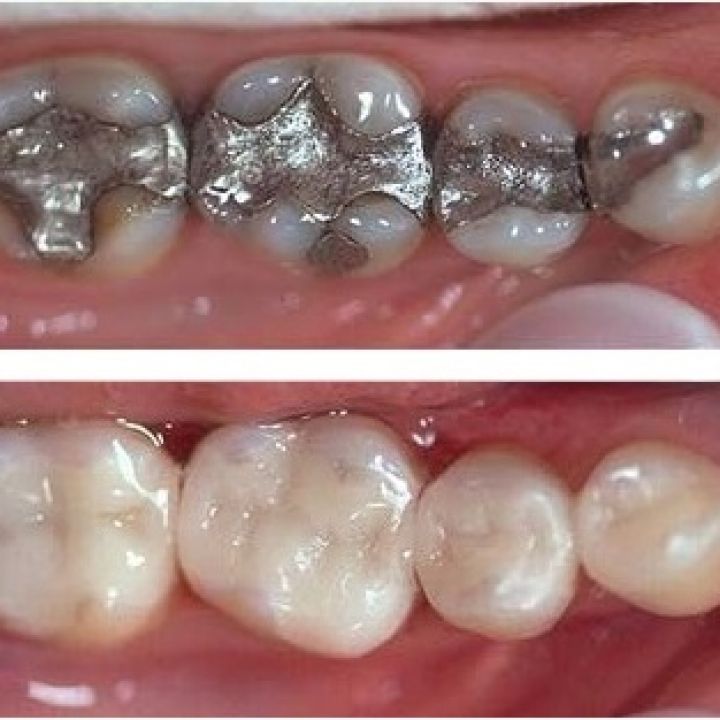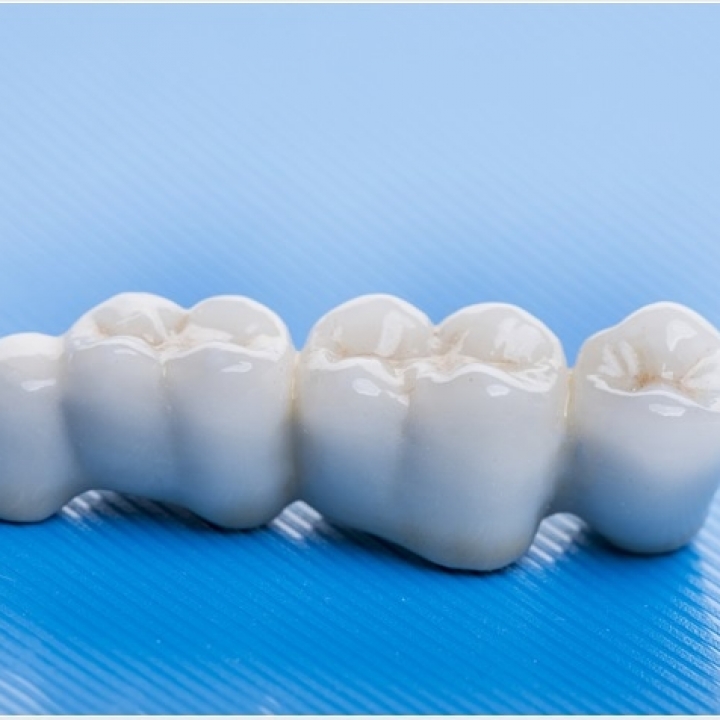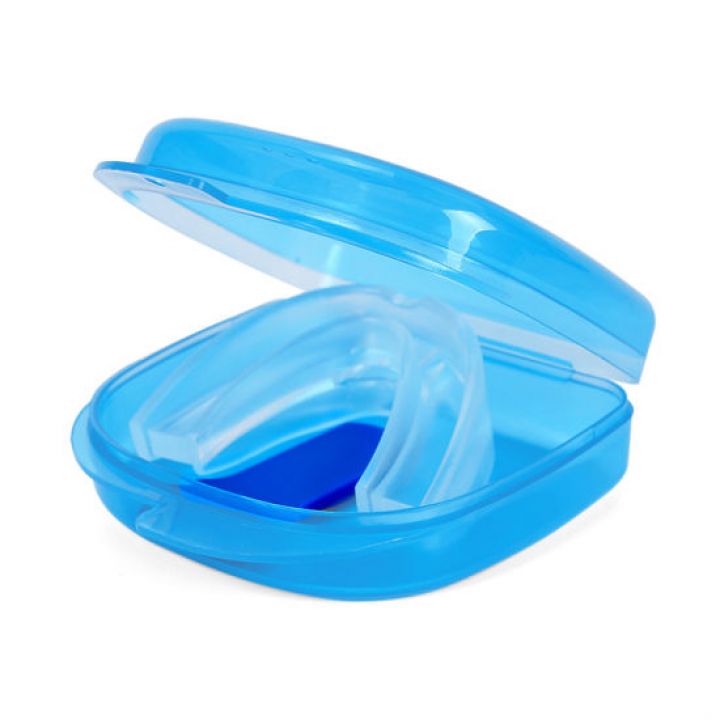Dentures and Partial Dentures
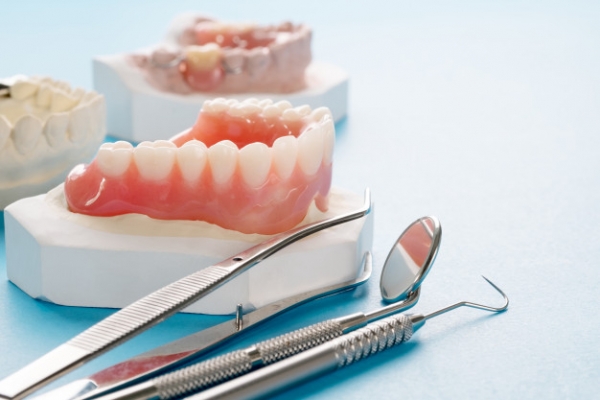
Dentures are replacements for missing teeth and are completey removable and this means they can be taken out and put back into your mouth. Dentures will take some time to get used to, but will never feel exactly the same as one's natural teeth. Although today's modern technology can provide great natural looking dentures, it is still 'false teeth' that at best will feel 'comfortable'.
There are two main types of dentures: full and partial. Your dentist will help you choose the type of denture that's best for you based on whether some or all of your teeth are going to be replaced and the cost involved.
Removable Partial Denture
The removable partial denture is a removable item that is constructed to replace one or more missing teeth, but not all the teeth. This means that the existing natural teeth can serve as anchors to stabilise this type of denture. An acrylic framework fits in the area between the existing natural teeth and carries false teeth, which then fill the gaps in the dentition.
Dental Componants:
- Acrylic white teeth
- Acrylic pink between teeth
- Claps and rests that hook around existing teeth to provide grip/retention
Metal Frame Dentures
A better partial denture is the Metal Frame Denture. This is a 'precision-fit' of denture. The metal is a silver colour and usually made of chrome-cobalt with the following components:
- Acrylic white teeth
- Metal frame fits snugly around teeth
- Precision clasps and rests
It is very important that all the teeth in an arch are restored before a metal denture is fabricated. The reason is that the denture is made to fit exactly against the existing teeth. If the form of a tooth is altered after the denture is made, chances are that the denture will not fit snugly against the existing teeth anymore.
Dentures are not the ideal answer to replacing missing teeth and very often patients expect too much. It can be compared to crutches for someone who had lost a leg. It will take a while to learn how to use them, but one can never expect to function in the same way as with natural teeth. It is also important to konw that many patients are more than happy with their dentures and don't want anything else. This means that much of the comfort and adaptation to wearing a denture is subjective that depends heavily on the individual.
 Care For Dentures
Care For Dentures
The resin that your denture is made from has microscopic holes that can collect food debris and bacteria. Dentures become contaminated, because they are in your mouth on a daily basis and sometimes worn 24 hours a day.
- Brush your denture twice daily with a denture brush and a non-abrasive denture toothpaste like STERADENT Denture Paste.
- Rinse your denture after every meal
- Do not wear your denture at night. This will give your gum tissue a rest and allow the normal cleansing by your saliva to promote long term health of your gums.
- Soak your denture in 50% water / 50% vinegar to inhibit fungus growth. A better alternative is Aloe Vera gel that is placed in the denture once a day. Aloe Vera is a good anti-fungal.
- It is normal to get "sore spots" especially the first few days after getting a new denture. Please wear your denture at least 3 hours before you visit us. This makes it easy to see the "sore spots" and to allow for exact adjustments.
- New dentures should be made every 5 - 7 years or when the denture are not comfortable anymore.


